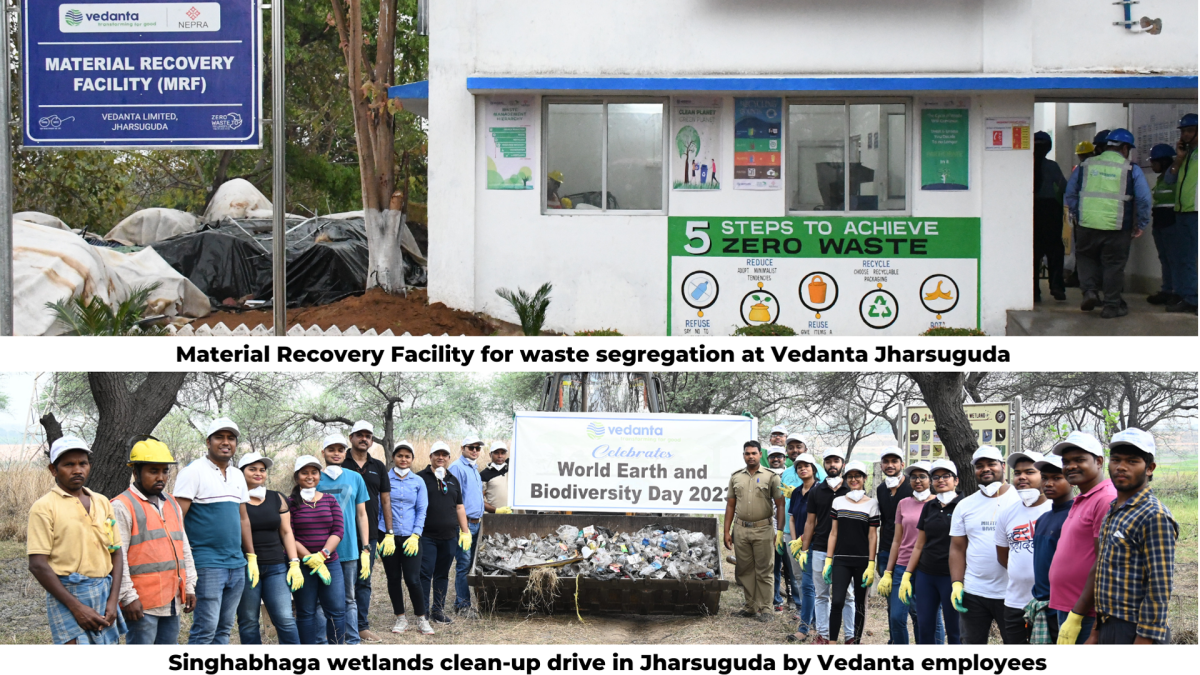Vedanta Aluminium observed Earth Day 2023 at its operations across Odisha and Chhattisgarh through several initiatives reinforcing its continued commitment to building a sustainable future. The company has deployed a new Material Recovery Facility, a specialised plant to segregate and process waste into useful materials, at its operations in Jharsuguda district, Odisha.
A major step towards the company’s goal of achieving ‘Zero Waste’, the new facility will help treat and sustainably manage waste material generated at the Jharsuguda plant, channelling them into new productive uses. In March 2023 alone, the facility converted 27,828 kgs, or nearly 28 tonnes, of dry and wet waste into several useful materials. Recyclable valuable waste generated from the Material Recovery Facility is further utilised within the plant’s operations, such as bio-compost and briquettes utilised for horticulture activities. Any non-recyclable materials generated from the Material Recovery Facility are sent to cement industries for co-processing, demonstrating new possibilities in establishing circular economy avenues within the domestic manufacturing landscape.
This has resulted in the mitigation of over 34,820 kgs of carbon dioxide equivalent emissions, while also resulting in energy savings of around 48,735 kWh gained by diverting waste from being relegated to landfills towards more gainful avenues. As per expert estimates, the energy saved is enough to power the equivalent of 100 LED televisions for 6090 hours, 100 laptops for 8120 hours, and 1000 LED bulbs for 6090 hours.
According to Rahul Sharma, CEO, Aluminium Business, Vedanta Ltd, Vedanta Aluminium is committed to creating a sustainable future where business needs grow in perfect harmony with the planet’s needs. Aluminium, utilised in several cutting-edge applications, is also acknowledged as one among the crucial metals that will lead the global transition to a low-carbon future, making it ‘the metal of the future’ in more ways than one. The organisational efforts are therefore aimed at creating long-term value for all its stakeholders while minimising the impact on the environment and also encouraging sustainable practices within the communities.
